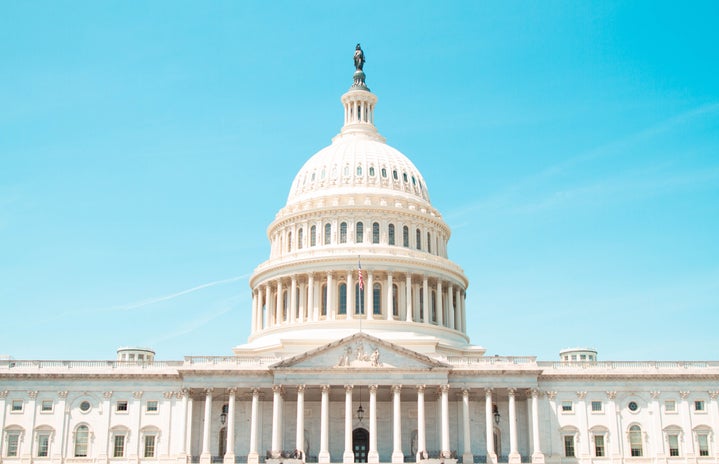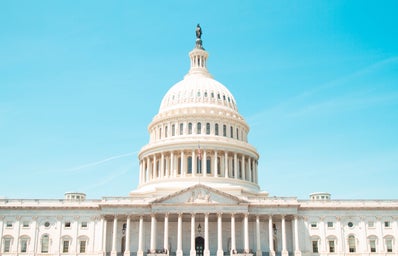Based on the current state of Congress, a government shutdown is likely to go into effect on October 1, 2023 — the start of the new federal fiscal year. If Congress fails to pass the 12 annual appropriations bills that fund government operations before this date, federal agencies must cease all non-essential operations until Congress enacts legislation.
What are the effects of a government shutdown?
If a shutdown occurs, over 4 million federal workers will receive delayed paychecks, including roughly 2 million military personnel. Many government employees will be told not to report to work, while others who are deemed “essential”— air traffic control, law enforcement, Veterans Health Administration doctors and nurses, etc.— will continue to work without pay until the shutdown ends. Though these employees will eventually be paid retroactively, a shutdown still poses severe challenges for families living paycheck to paycheck, especially at a time when inflation has increased to 3.7%.
Shutdowns typically lead to a variety of disruptive impacts on government services. We will likely experience delays in processing applications for passports, small business loans, firearm permits, and government benefits. A shutdown also poses a threat to food aid programs, such as the Supplemental Nutrition Assistance Program (SNAP), that 40 million Americans rely on. According to the USDA Food and Nutrition Service, almost 7 million pregnant and postpartum individuals and children could lose access to supplemental food aid through the Women, Infants, and Children program.
A shutdown is also expected to reduce economic growth by 0.2% every week, according to Goldman Sachs, though markets are expected to bounce back once the shutdown ends. According to the U.S. Travel Association, a shutdown could cost the national travel economy up to $140 million daily. With national parks closed, as well as flight delays and longer screening lines, a federal government shutdown is likely to slow travel and negatively impact the tourism industry.
In a survey by the nonpartisan Partnership for Public Service, 68% of respondents say the threat of a shutdown decreases their trust in the government. Funding government services is one of the basic responsibilities of elected officials, so when Congress fails to do their job, it rattles public confidence and reflects in low approval ratings. According to a September 2023 survey by the Pew Research Center, 72% of Americans say they have an unfavorable view of Congress, one of the highest figures in almost 40 years. A shutdown will only worsen these already dismal ratings and will potentially come back to haunt some politicians during reelection season.
Even Republican Senate Minority Leader Mitch McConnell disapproves of the impending shutdown. “I’m not a fan of government shutdowns,” McConnell tells CBS. “I’ve seen a few of them over the years. They have never produced a policy change and they’ve always been a loser for Republicans politically.” Other Republicans agree, knowing that their party is likely to suffer in the aftermath of a shutdown. “I think the governing majority, which is presiding at the time the government shuts down, probably is going to bear a lot of the blame,” Rep. Steve Womack tells POLITICO. “And we’re the ones with the gavel… it’s our job to run the government.”
Why is a government shutdown likely to happen?
In June 2023, after intense negotiations between House Speaker Kevin McCarthy and the White House to avoid defaulting on debt, Congress passed the Fiscal Responsibility Act (FRA), which was then signed by President Joe Biden. Backed by Republican leaders in both the House and the Senate, this bill lifted the federal debt ceiling and set limits on annual appropriated spending—one for defense and one for non-defense—for the 2024 and 2025 fiscal years.
With this agreement in place, Congress was expected to pass 12 appropriations bills that added up to the agreed-upon levels. While the Senate Appropriations Committee has passed all 12 bills with bipartisan support, the House of Representatives has not done the same, largely due to chaos and turmoil within the Republican majority. A small group of far-right House conservatives led by Florida Rep. Matt Gaetz, unhappy with the FRA deal, want to spend less than the specified levels and are instead advocating for extreme spending cuts in the annual appropriations. With a slim Republican majority in the Senate and the constant threat of ousting McCarthy from his speakership, it seems as though the minority of extreme Republicans has essentially taken control over the House.
These lawmakers refuse to compromise, even with members of their own party, causing some comparatively moderate House Republicans to lose patience. “The problem is we are being dragged around by 20 people when 200 of us are in agreement,” Rep. and senior member of the Appropriations Committee Mike Simpson tells the New York Times. “As long as we let those 20 drag us around, we are going to get these kinds of results.” Even Speaker McCarthy, who has made numerous concessions to the group to preserve his speakership, has expressed his frustration. “This is a whole new concept of individuals that just want to burn the whole place down,” McCarthy said.
With less than a week until the deadline, it is extremely unlikely that Congress will be able to pass all 12 appropriations bills. Typically, it takes several weeks, if not months, to process the large bills and hundreds of amendments. Currently at a standstill, the House has not begun voting on any of the dozen spending bills. The internal arguments are essentially irrelevant, since these bills contain steep spending cuts (and controversial provisions on abortion, contraception, tobacco regulation, and trans healthcare) that will not be approved by the Senate or signed by President Biden. President Biden has already stated that he would veto these pending House appropriations bills, as the Biden Administration expects Congress to follow through on their end of the deal and implement the agreed-upon spending levels in the FRA.
McCarthy hopes to pass a stop-gap funding bill, or continuing resolution, that would temporarily allow government agencies to continue operating until Congress can pass the appropriations bills. However, hard-right Republicans strongly oppose a short-term deal, meaning that McCarthy simply doesn’t have the votes to pass such a resolution. If McCarthy puts a continuing resolution on the floor or moves forward with a bill that could gain bipartisan support, the ultra-conservatives have vowed to bring a vote to remove him as speaker. With no clear path in sight, we can only hope that our elected officials will prioritize the wellbeing of the American people, even if that requires bipartisan compromise.


